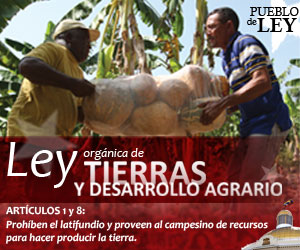- Details
-
Created: Tuesday, 06 January 2015 23:13
-
Written by Other Sources
Published on 24 December 2014 by Steve Ellner - New Left Project
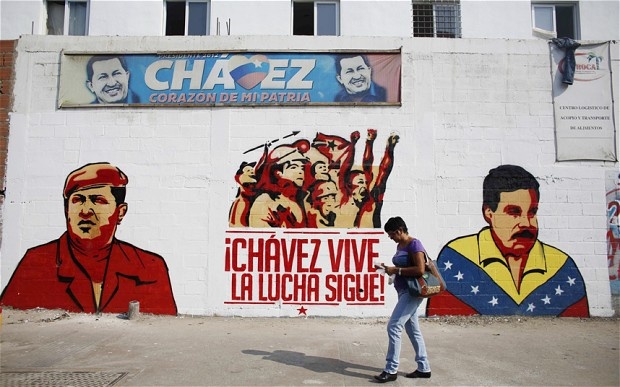 Nearly two years after the death of Hugo Chávez, the key question that many on the left are debating, in Venezuela and elsewhere, is whether his successors have been true to his legacy, or whether the ‘revolutionary process’ initiated more than a decade ago has now stalled or even been thrown into reverse. The recent emergence of a number of pressing problems has convinced some Chavistas that the revolution has either been betrayed or, at best, that President Nicolás Maduro is severely lacking in Chávez’s political acumen. High on the list of difficulties are the chronic shortages of numerous consumer goods and products, including basic ones, as well as an annual inflation rate of over 60 percent. Both of these, Maduro claims, are part of an ‘economic war’ being waged by powerful interests to destabilize Venezuela. The government’s difficulties include the universally recognized problem of corruption.
Nearly two years after the death of Hugo Chávez, the key question that many on the left are debating, in Venezuela and elsewhere, is whether his successors have been true to his legacy, or whether the ‘revolutionary process’ initiated more than a decade ago has now stalled or even been thrown into reverse. The recent emergence of a number of pressing problems has convinced some Chavistas that the revolution has either been betrayed or, at best, that President Nicolás Maduro is severely lacking in Chávez’s political acumen. High on the list of difficulties are the chronic shortages of numerous consumer goods and products, including basic ones, as well as an annual inflation rate of over 60 percent. Both of these, Maduro claims, are part of an ‘economic war’ being waged by powerful interests to destabilize Venezuela. The government’s difficulties include the universally recognized problem of corruption.
Of course, these scourges were also prevalent under Chávez, but with less intensity, and in any case he faced them head on. His response to the shortages of basic commodities – which became particularly severe in 2007, influencing the outcome of the referendum on proposed constitutional reform – was to decree widespread expropriations. In 2009 he faced the problem of corruption that led to a major financial crisis by jailing at least 16 bankers, including the brother of a trusted cabinet minister, and ordering the arrest of over 40 others who fled the country, while at the same time nationalizing 13 banks.
Radical Chavistas point out that Maduro is lacking in audacity of this type. They criticize, for instance, the decision to replace the Chavista slogan ‘Chávez Lives, the Struggle Continues!’ with ‘Chávez Lives, the Homeland Continues!’ as indicative of political retreat and a lessening of the leadership’s revolutionary fervour. One Chavista radical concluded that, given this type of rhetorical modification, ‘Chávez is facing a second death.’ [1] The radicals also questioned the rationale behind the proposed ‘peace dialogue’ with opposition leaders and the business sector, designed to control the violent protests that shook Venezuela in early 2014. They were convinced that underlying these conversations were concessions to the historical enemies of the Bolivarian revolution. Antonio Aponte and Toby Valderrama, an ex-guerrilla of the 1960s whom Maduro has attacked personally, wrote ‘It’s time for self-criticism: we wanted to avoid sacrifices and so we extended our hand to the bourgeoisie, the enemies of peace… we wanted to control the capitalist monster that is uncontrollable.’ [2]
These critiques raise the question of how to evaluate a government committed to taking the gradual democratic road to far-reaching change in the context of extreme polarization and conflict. Is a period of lull in the deepening of change, including compromises with adversaries, necessarily a sign that all has been lost, as those who invoke the term ‘permanent revolution’ often argue? Certainly, history is replete with examples of governments committed to structural transformation that, after initial advances, begin to backslide and end up completely abandoning the struggle. On the other hand, Lenin’s slogan of ‘one step backwards to take two steps forward’ (in reference to the New Economic Policy) may be applicable to Venezuela under Maduro, as some Chavista moderates suggest. Finally, what are the issues we should be looking at in evaluating the Maduro government’s claim to have inherited Chávez’s revolutionary mantle? And what are the issues that are not particularly germane to this discussion but that some on the left are raising in a misguided attempt to define the ideological orientation of the Maduro government?
Read more ...
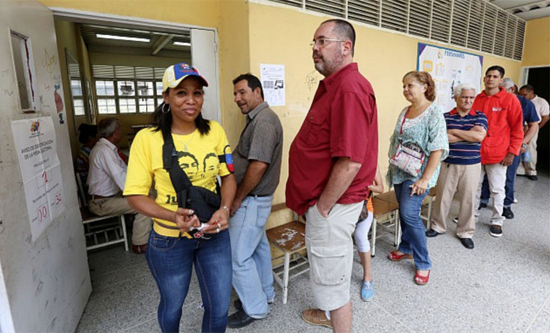

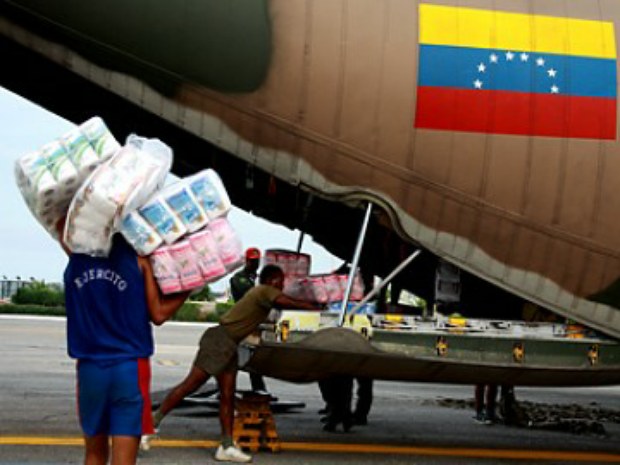
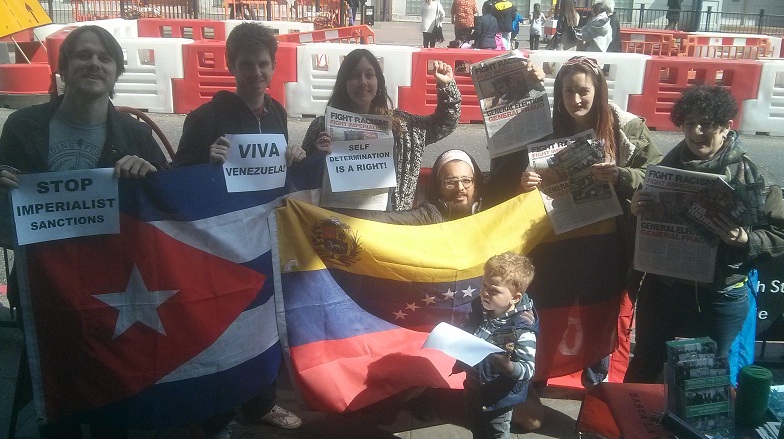 In Lewisham, anti-austerity and anti-cuts campaigners from South London RCG held a street stall in solidarity with Venezuela.
In Lewisham, anti-austerity and anti-cuts campaigners from South London RCG held a street stall in solidarity with Venezuela. 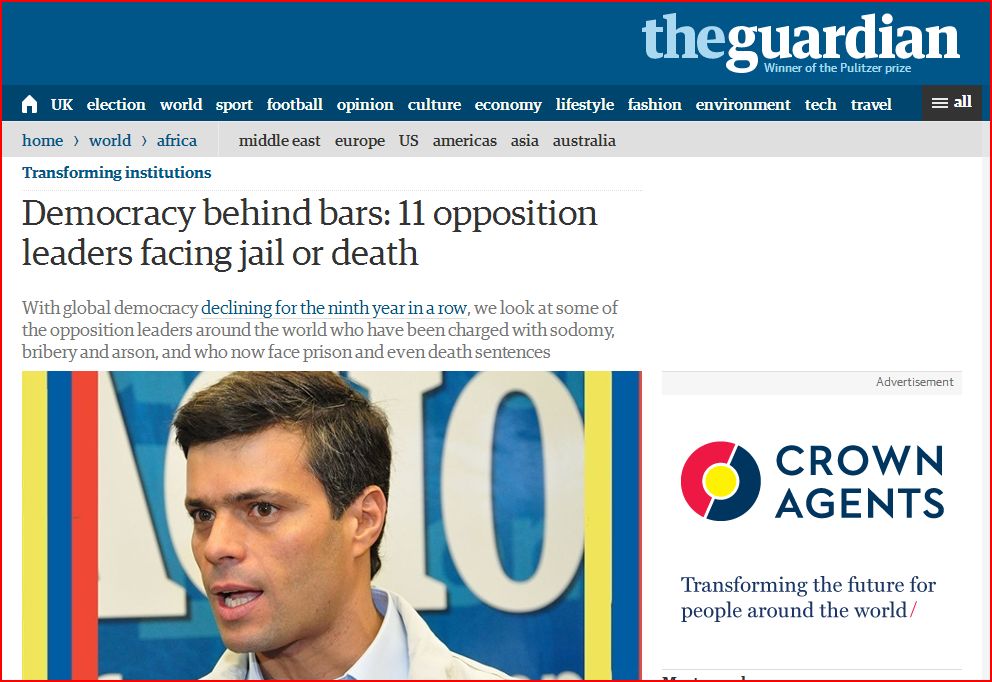 One wonders how many mistakes, glaring omissions and biased statements can one fit in just two paragraphs of just 88 words. When it comes to Venezuela, the answer is, a lot. On Friday, 27 of March, the Guardian published a piece called
One wonders how many mistakes, glaring omissions and biased statements can one fit in just two paragraphs of just 88 words. When it comes to Venezuela, the answer is, a lot. On Friday, 27 of March, the Guardian published a piece called  Different media outlets and social media accounts have been stirring up a series of rumours, alleged confirmations and pseudo-confirmations regarding several cases of child abduction, with some even providing an astonishing level of detail. However, outside of the realm of the corporate media, no reports have been filed with either state security forces or with the Public Prosecutor’s Office. Since the end of February and the beginning of March, rumours have been circulating in the exceedingly malleable world of Facebook and through chains in other networks such as Blackberry Pin and Whatsapp Chat.
Different media outlets and social media accounts have been stirring up a series of rumours, alleged confirmations and pseudo-confirmations regarding several cases of child abduction, with some even providing an astonishing level of detail. However, outside of the realm of the corporate media, no reports have been filed with either state security forces or with the Public Prosecutor’s Office. Since the end of February and the beginning of March, rumours have been circulating in the exceedingly malleable world of Facebook and through chains in other networks such as Blackberry Pin and Whatsapp Chat. 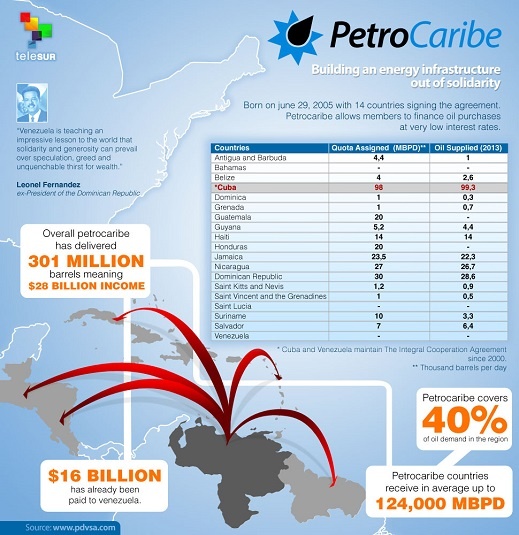 The summit, attended by 17 delegates from member states, generated several important decisions for the Caribbean bloc’s future, one of which was the decision to create an economic zone, and another was a focus on regional peace: “We reaffirm that the Caribbean is peaceful region, where member states promote integration processes and friendship, to keep guaranteeing the greatest amount of happiness for our people.” The final decisions of the bloc affirmed that “the founding spirit of Petrocaribe is to be a mechanism of solidarity, cooperation and friendship between the peoples of our region."
The summit, attended by 17 delegates from member states, generated several important decisions for the Caribbean bloc’s future, one of which was the decision to create an economic zone, and another was a focus on regional peace: “We reaffirm that the Caribbean is peaceful region, where member states promote integration processes and friendship, to keep guaranteeing the greatest amount of happiness for our people.” The final decisions of the bloc affirmed that “the founding spirit of Petrocaribe is to be a mechanism of solidarity, cooperation and friendship between the peoples of our region."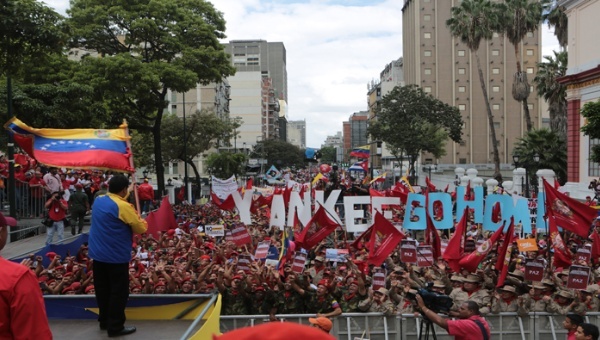 Over 100,000 Venezuelans mobilized throughout the country for a series of national military exercises in defense of their national sovereignty on Saturday.
Over 100,000 Venezuelans mobilized throughout the country for a series of national military exercises in defense of their national sovereignty on Saturday.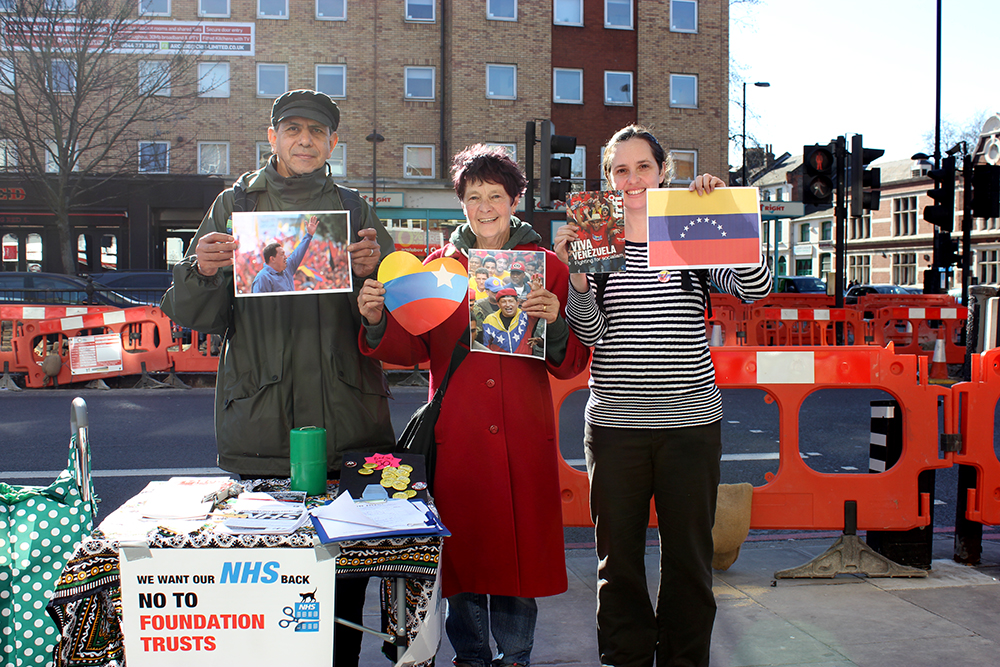 As part of an international week of action, on Saturday 7 March, activists from the Revolutionary Communist Group brought solidarity with Venezuela to their weekly action against the privatisation of Whittington Hospital in Archway, London.
As part of an international week of action, on Saturday 7 March, activists from the Revolutionary Communist Group brought solidarity with Venezuela to their weekly action against the privatisation of Whittington Hospital in Archway, London. 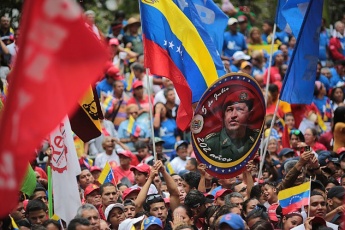
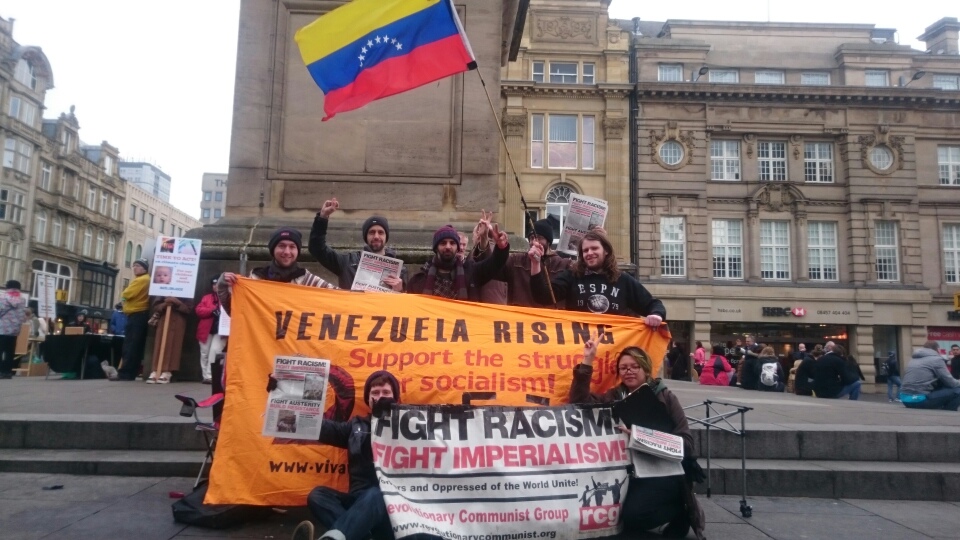
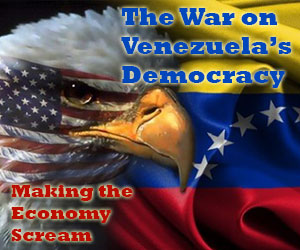
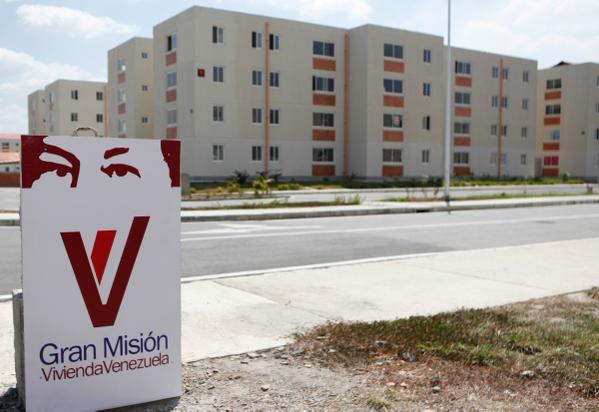
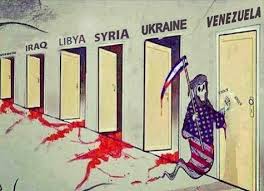
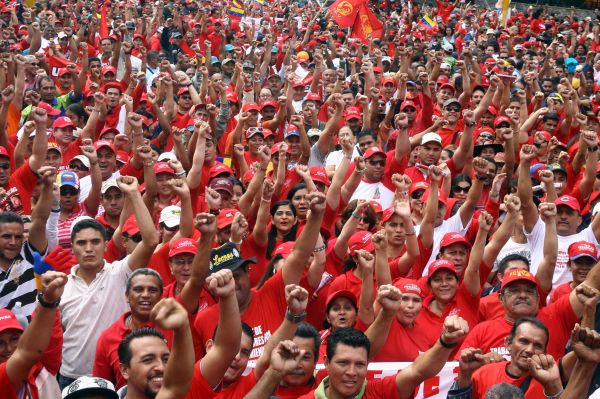

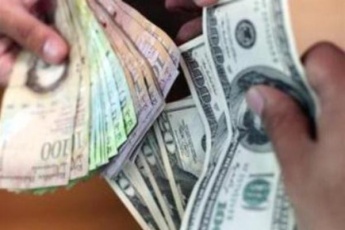 The Venezuelan government has published previously withheld data revealing that the economy entered a recession in the second quarter of this year. However President Nicolas Maduro said significant changes to Venezuela’s economic model were being planned and that an economic “recovery plan” would be implemented in early 2015.
The Venezuelan government has published previously withheld data revealing that the economy entered a recession in the second quarter of this year. However President Nicolas Maduro said significant changes to Venezuela’s economic model were being planned and that an economic “recovery plan” would be implemented in early 2015.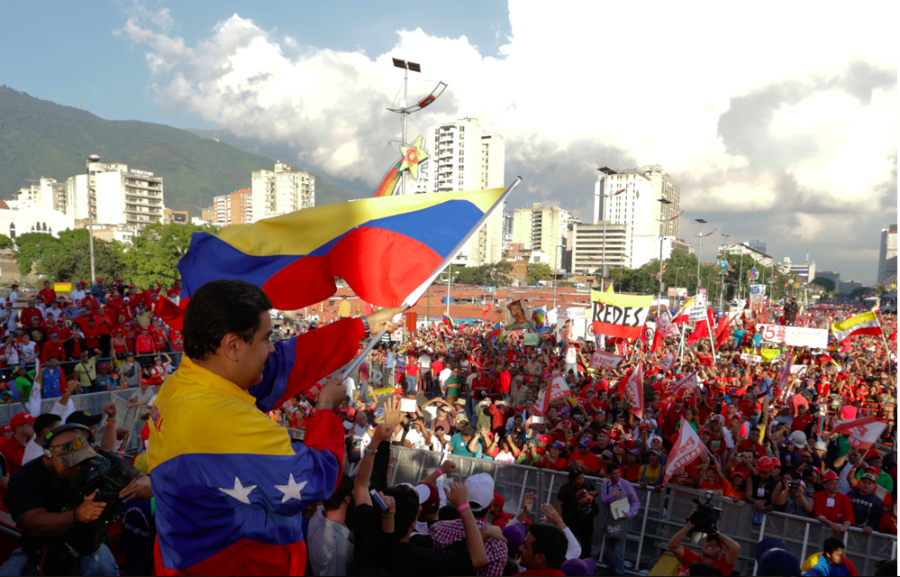
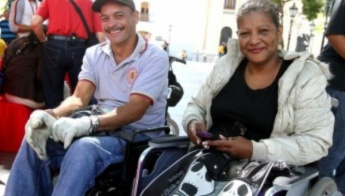
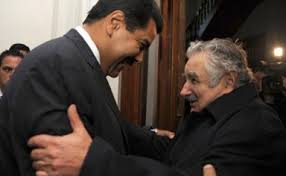
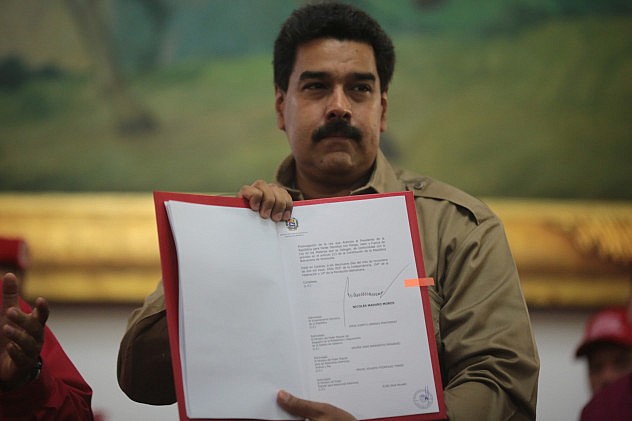
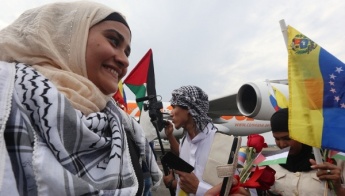
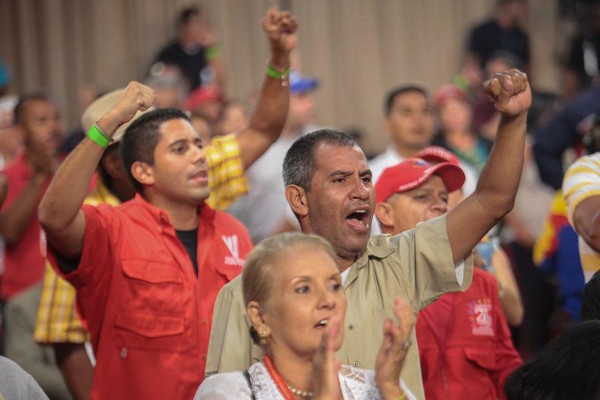
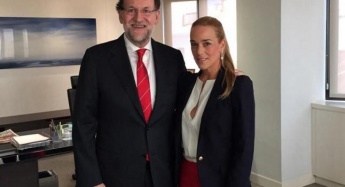
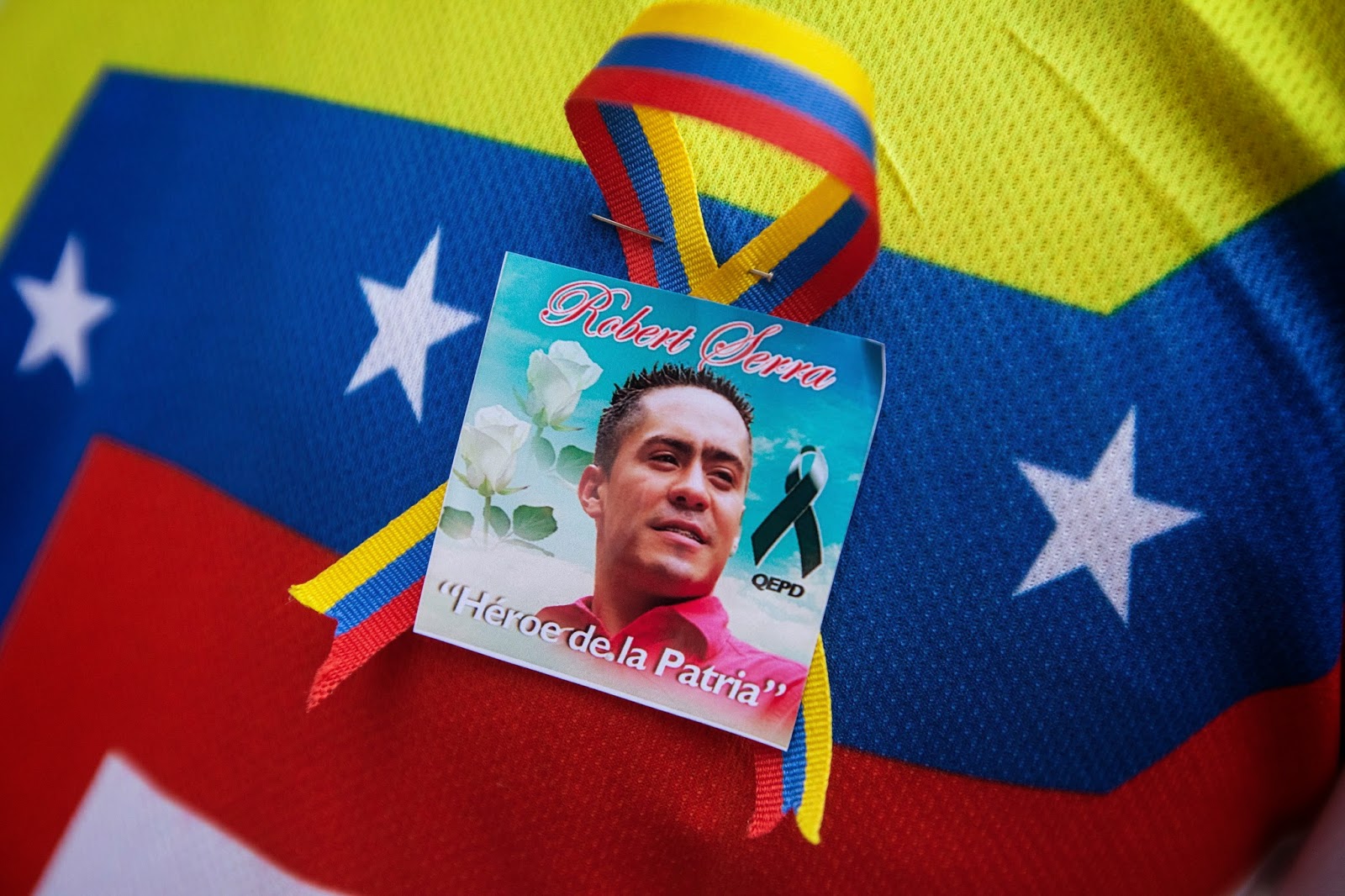 All eight men who participated in the murder of pro-government lawmaker Robert Serra have been identified, said Venezuelan president Nicolas Maduro in a press conference.
All eight men who participated in the murder of pro-government lawmaker Robert Serra have been identified, said Venezuelan president Nicolas Maduro in a press conference.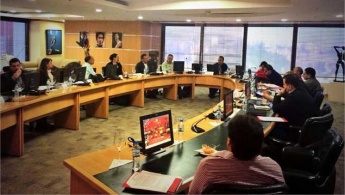
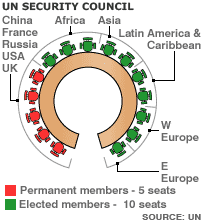
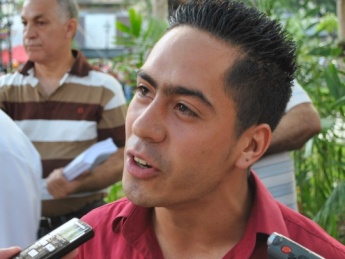
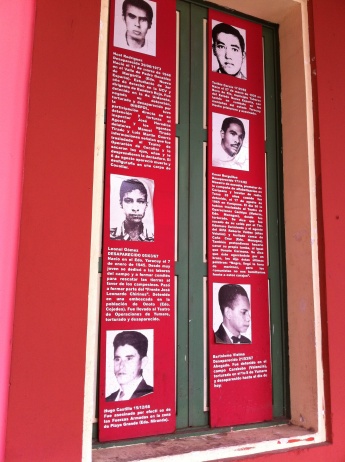 In the face of arrests, trials, and detentions of opposition and student leaders, allegations of political repression in Venezuela are circulating international and private national press. The Venezuelan government and its supporters adamantly reject the claim that Venezuela has any political prisoners and they assert that everyone in detention is being tried for their involvement in criminal conduct. This article aims to explore the issue of political prisoners in Venezuela by providing a broader historical context combined with an analysis of power in Venezuela today.
In the face of arrests, trials, and detentions of opposition and student leaders, allegations of political repression in Venezuela are circulating international and private national press. The Venezuelan government and its supporters adamantly reject the claim that Venezuela has any political prisoners and they assert that everyone in detention is being tried for their involvement in criminal conduct. This article aims to explore the issue of political prisoners in Venezuela by providing a broader historical context combined with an analysis of power in Venezuela today.